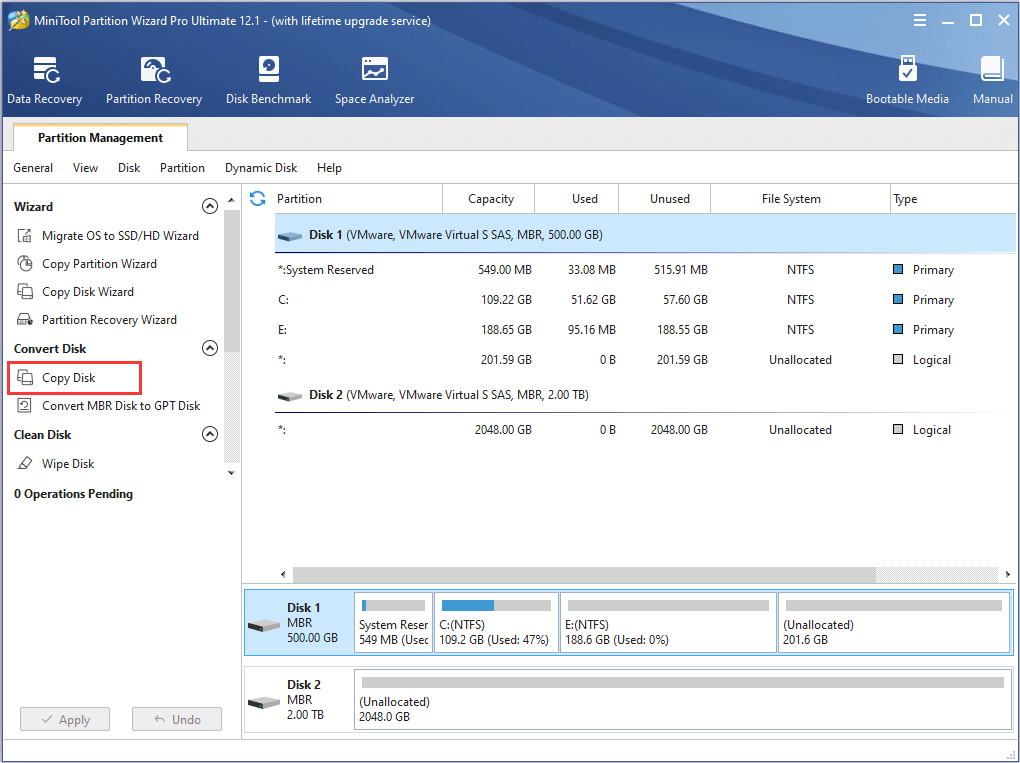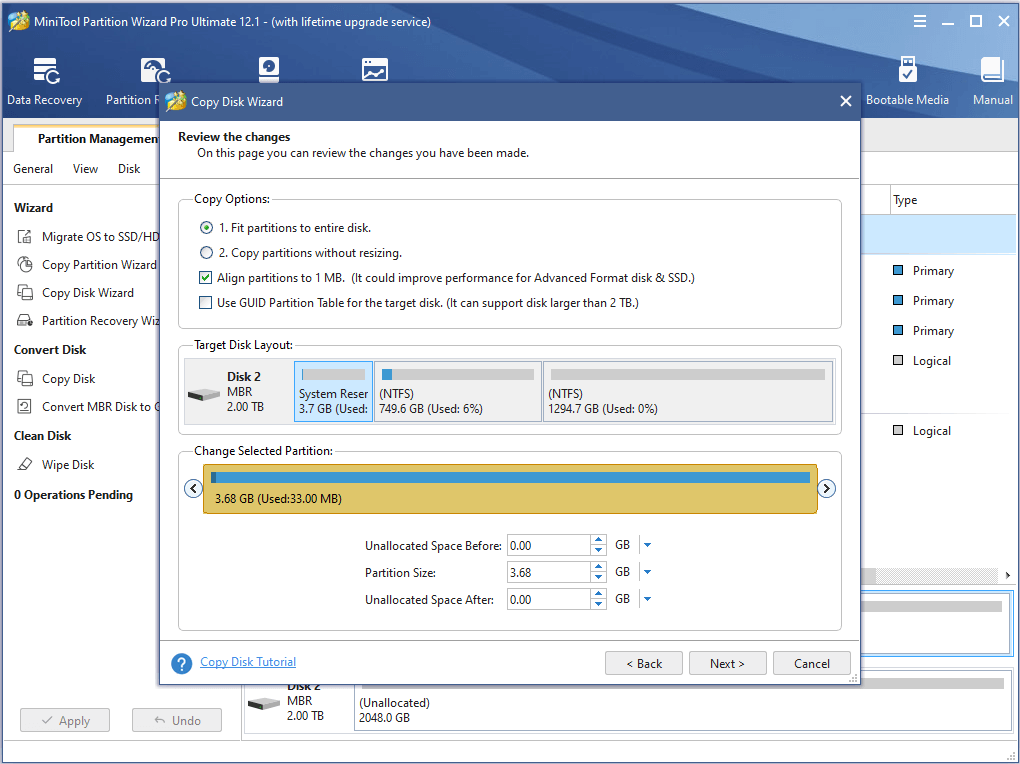To get perfect gaming experience, you might want to buy a gaming laptop. But do you really need it? Are gaming laptops worth it? What are the factors you should pay attention to while choosing a gaming laptop if you need to buy one? Well, in this guide from MiniTool Partition Wizard, you will get the answers.
Are Gaming Laptops Worth It?
Nowadays, people are no longer satisfied with just playing games on game consoles or mobile phones, and most gaming lovers would like to play games on computers. They pursue higher visual enjoyment (graphics) and faster gaming speed, and may want to deal with entertainment and work with just one device, so gaming computer is the way to go.
With more and more computer games available on the market, gaming performance is becoming a standard feature in computers today, and it has been an important factor to consider for most young people while buying a computer. Depending on whether to do gaming on the go, users may choose gaming desktops or portable gaming laptops.
Compared with gaming desktops, gaming laptops make it possible to enjoy PC video games out of home, but it is much more expensive. All things being equal, a gaming desktop will be more powerful, as similar components will perform better on a desktop which has a bigger chassis and more fans for better cooling and heat dissipation.
Is a gaming laptop worth it? Generally speaking, it is not recommended to buy a gaming laptop unless you are a professional player or gaming enthusiast who needs to do gaming on the travel. Because it comes with many disadvantages which are not so acceptable for common users.
- On average, the cost of a gaming laptop is twice as much as that of setting up a gaming desktop.
- Gaming laptops are not effective at getting rid of heat and it usually gets overheating.
- Most gaming laptops use membrane keys that can’t withstand continuously being pressed down hard or for a long time.
- Gaming laptops are designed to be compact, so commonly there’s no space for you to install additional components. As the existing ones are fixed in their places, it is complicated to upgrade them.
Precautions for Buying a Gaming Laptop
If you need to buy a laptop for gaming, here are some precautions you might need to pay attention to.
CPU, GPU and RAM
Most video games have certain requirements for CPU, GPU, and RAM for the device. As it is difficult to upgrade these for a laptop, you had better make sure these components can meet the requirements of your games while choosing a gaming laptop.
For CPU, Core i5 is enough for most games, and bigger numbers (like Core i7) mean better performance. Besides, the CPU should aim for quad-core or above, because dual cores aren’t as capable in gaming.
For GPU, most gaming laptops are equipped with Nvidia GeForce GTX or RTX. If you don’t play games on high settings, GTX 1650 or AMD RX 5500M might be enough. An RTX 2070 can enable you to play through about anything on high settings. You may also choose a laptop with better GPU which might greatly affect the price.
For RAM, 8GB is enough in most cases. But if you tend to perform multiple tasks at one time, such as playing a game with many programs running in the background, perhaps 16GB RAM is needed. If you can’t afford a gaming laptop with 16GB RAM, you can choose one with 8GB and then upgrade it later, but it is risky and may mess up the laptop’s warranty.
Storage
Some budget laptops come with just one hard drive which is usually 1TB, but most gaming laptops also include a small SSD to act as the boot drive. You need to choose a 7200-rpm rather than a 5400-rpm HDD.
There are no many choices for storage of gaming laptops, but the price may vary greatly by capacity. If large storage is not an urgent thing for you now, you had better choose a gaming laptop with smaller storage. When needed, you can invest an external HDD or SSD to upgrade the storage later.
Size
Most laptops for gaming have 15 or 17-inch screens, and some also have 18 or 14-inch panels. Of course, the device with a larger screen is always bigger and heavier. Some top-end gaming laptops contain a degree of ventilation which also makes them large in build.
Brand
Each gaming laptop brand has its own positioning. For example, Acer provides users affordable hardware, and Asus gives its gaming laptops stylish designs and offers software to share device information.
So, if you are caring much about a certain aspect for a new laptop, it is a wise choice to select a brand that focuses on this aspect at first.
Battery Life
It is quite important to check the battery life and choose one that can last long while purchasing a portable device. After all, you cannot always charge for it when you are outdoor.
Where to Buy
You should avoid buying a gaming laptop from an untrustworthy retailer which might charge you more and lack of quality assurance. Instead, you had better visit the official flagship store either offline or online where you can purchase products without worries.
If you prefer online shopping, then Amazon, eBay, or Best Buy should be great options for you.
Best Gaming Laptops in 2020
A gaming laptop that is able to run most modern games with high quality is commonly more than $1000. If you want to purchase a laptop for gaming under $1000, you can check the products introduced in this guide. If you care much about the gaming performance and have adequate budget, you might be interested in the following products.
Here are 5 best gaming laptops, and let’s check them out one by one.
5 Best Gaming Laptops at a Glance
- Asus ROG Zephyrus G14
- Gigabyte AORUS 17X
- Alienware Area-51M
- Razer Blade
- Lenovo Legion Y740
1. Asus ROG Zephyrus G14
- CPU: AMD Ryzen 7 4800HS – 9 4900HS
- Graphics: NVIDIA GeForce RTX 2060
- RAM: Up to 32GB
- Screen: 14-inch Non-glare Full HD (1920 x 1080) IPS-level panel, 120Hz – 14-inch Non-glare WQHD (2560 x 1440) IPS-level panel, 60Hz
- Storage: 512GB / 1TB M.2 NVMe PCIe 3.0
- Price: $1,229 – $3,179 at Amazon
This should be the best AMD laptop on the market, providing an incredible performance with its AMD Ryzen 4000 processors and NVIDIA RTX 2060 graphics. Besides, it has the best-in-class battery life which can last all day long and offers a fast display with a 120Hz refresh rate. However, it lacks of webcam and the fans may get loud.
2. Gigabyte AORUS 17X
- CPU: 10th-generation Intel Core i7 – i9
- Graphics: NVIDIA GeForce GTX 16 series – RTX 20 Super series
- RAM: up to 64GB
- Screen: 13″ Thin Bezel FHD 1920×1080 240Hz Anti-Glare Display
- Storage: 1TB SSD (PCIe), 2TB HDD
- Price: start at $2,956.81 (currently available)
This gaming laptop dominates all-around performance and provides a gorgeous display, a mechanical keyboard, and durable built quality for you on the go. As you can see, it is relatively expensive and heavy, and its RTX 2080 model needs 2 power adapters. But it will be worthy if you are seeking for maximum overall performance and stability.
3. Alienware Area-51M
- CPU: Intel Core i7-9700 – i9-9900K
- Graphics: NVIDIA GeForce RTX 2060 – 2080
- RAM: 16GB – 64GB
- Screen: 17.3″ FHD (1920 x 1080) 60Hz Anti-Glare IPS – 144Hz IPS NVIDIA G-SYNC
- Storage: 1TB SSHD – 2TB RAID 0 SSD + 1TB SSHD
- Price: $3,499 – $5,759 at Amazon
This is the most powerful gaming laptop on the market so far, equipped with bright RGB lighting and powerful desktop hardware which makes it quite heavy. Its comfy keyboard and VR readiness are also impressed features. Its steep price makes it more suitable for these high-end players.
4. Razer Blade
- CPU: Intel Core i7-8750H – Intel Core i7-9750H
- Graphics: Nvidia GeForce GTX 1060 (6GB GDDR6 VRAM) – Nvidia GeForce RTX 2080 Max-Q (8GB GDDR6 VRAM)
- RAM: 16GB
- Screen: 15.6-inch FHD (1,920 x 1,080) 144Hz – OLED 4K (3,840 x 2,160) Touch 60Hz
- Storage: 256GB – 512GB SSD
- Price: $1,570 – $3529 at Amazon
This gaming laptop delivers amazing power and portability, and its 15.6″ Thin bezel Full HD display provides an immersive and insanely fast visual experience. It attracts plenty of users with its compact and svelte design.
5. Lenovo Legion Y740
- CPU: Intel Core i7-8750H
- Graphics: Nvidia GeForce RTX 2060 (6GB GDDR6 VRAM) – RTX 2070 (Max-Q 8GB)
- RAM: 16GB – 32GB
- Screen: 15.6-inch FHD (1,920 x 1,080) Nvidia G-Sync 144 Hz
- Storage: 256GB SSD – 512GB SSD+1TB HDD
- Price: $1,249.99 – $1,549.99 at Amazon
As one of the best gaming laptops, this product has powerful internal components and is effective in thermal cooling. However, its unfortunate keyboard and webcam placement and poor battery life restrain the desire of some users to buy it.
Not Pursuing the Ultimate Gaming Performance? Upgrading Disk Is Enough
As mentioned before, it is not recommended for ordinary users to purchase a gaming laptop. But this doesn’t mean that you have to give up better gaming performance.
If you want to improve gaming experience but don’t pursue the ultimate performance, upgrading your disk should be a relatively effective, reasonable, and affordable option. According to your own needs, you can choose to upgrade to an SSD or a larger HDD.
You can use MiniTool Partition Wizard to transfer all the data including operating system from the original disk to the new one. Here’s a simple guide:
MiniTool Partition Wizard DemoClick to Download100%Clean & Safe
Step 1: Install the program and register with your license key. Connect the prepared disk to your device.
Step 2: Choose the original disk and click Copy Disk from the left pane.

Step 3: Select the new disk to save the source content and click Next button.
Step 4: Configure the new disk according to your needs and click Next button to proceed.

Step 5: Read the note on how to boot from the destination disk and click Finish. When you go back to the main interface, click Apply to execute the pending operations.
After that, you can replace the current disk with the new one and then enjoy a better gaming experience.
Bottom Line
Are gaming laptops worth it? After reading this article, you should have already gotten the answer in your mind. If you are eager to buy such a device, you can refer to the best gaming laptops listed above. If you don’t pursue ultimate gaming performance, you can also choose to upgrade your disk instead.
We will appreciate it if you share your own experience and ideas in the comment zone. For any problems about MiniTool software, you can contact us via [email protected].
Are Gaming Laptops Worth It FAQ
The reasons why gaming laptops get slow includes:
- Accumulation of dust in fans.
- Background programs consuming much system resources.
- Overheating due to lack of ventilation.
- Hard drive fragmentation.
- Wrong game drivers or outdated device drivers.
- …

User Comments :